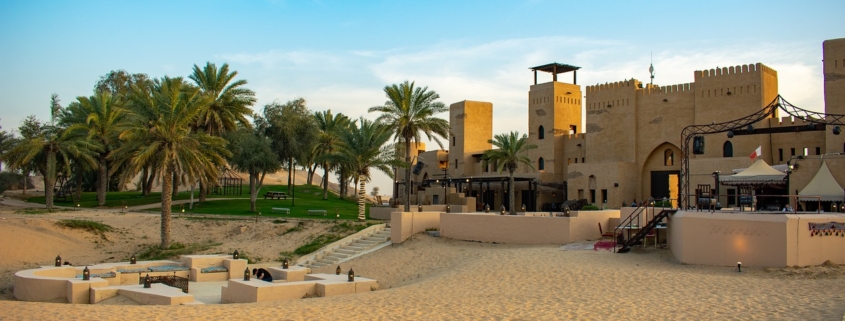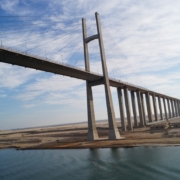How did the Gulf states dominate the global oil market?
Topic of Study [For H2 History Students]:
Paper 1: Understanding the Global Economy (1945-2000)
Section B: Essay Writing
Theme II Chapter 1: Reasons for growth of the global economy; Chapter 2: Reasons for problems of the global economy
The value of ‘Black Gold’: Oil
As the Allied powers concluded the Second World War (WWII) with the help of the USA, the latter recognised the strategic and economic value of oil, given its relevance to enable the continuation of war efforts then.
After the Yalta Conference, US President Franklin Roosevelt met the Saudi King Abdel Aziz on the cruiser USS Quincy on 14 February 1945. The Saudi King agreed to let the USA carry out port visits and build an airfield. At the same time, concession was given to the oil production by the Saudi-American Oil Company (Aramco). Notably, this collaborative relationship continued after WWII.
Since then, a special relationship between the two countries has evolved, due not only to mutual interest in reliable supplies of oil flowing to the West but also to their close cooperation in Middle East regional security. During the Cold War, Saudi Arabia considered atheistic Soviet Communist ideology to be the greatest threat to Muslim hearts and minds. Thus, the kingdom also opposed radical Arab leaders such as President Gamal Abdel Nasser of Egypt, who established cordial relations with the Soviet Union.
An excerpt taken from “Government and Politics of the Middle East and North Africa: Development, Democracy, and Dictatorship” by Mark Gasiorowski and Sean Yom.
During the Cold War, the USA rose to prominence by acting as a security guarantor for the six Arab states in the Persian Gulf (Bahrain, Oman, Qatar, Kuwait, Saudi Arabia and the United Arab Emirates). Having a reliable access to oil supply was vital in facilitating post-war economic reconstruction. As such, the USA was a key importer of oil, thereby keeping the Middle Eastern powers relevant.
US interest in the Gulf was also a by-product of the postwar economy in the developed world. Postwar reconstruction, a growing western consumer power, and the mass hydrocarbons at the centre of the world’s wealthier economies, and created an explosion in demand, with the unsurprising result that ensuring secure and reliable access to oil supplies became a central pillar of US and western foreign policies. […] From that time, the sheer size and quality of the Middle East’s reserves meant that the region could probably never have avoided becoming entangled in international politics as it did during and after the Cold War.
An excerpt taken from “The Economy of the Gulf States” by Matthew Gray.
Jockeying for position: Claiming ownership rights and petrodollars
Before the Organisation of Petroleum Exporting Countries (OPEC) was formed in 1960, the “Seven Sisters” dominated the global oil industry. In 1908, the British discovered oil in western Persia (which later came to be known as Iran). Six years later, the Anglo-Persian Oil Company (APOC) was formed, with the British holding 51% stake in it.
In the 1950s, in line with developments in the international oil business, companies were compelled to shift to 50:50 profit-sharing agreements. For the first time, oil revenues were truly substantial: the Bahraini ruler received oil revenues of about £2.5 million in the mid-1950s. In Kuwait, the 50:50 agreement of 1950 generated £60 million from the Al Sabah in the mid-1950s, while the Qatari rulers received about £5 million per year. The Saudi oil income reached about £20 million in 1950, but rose faster than that of any other country in the region.
An excerpt taken from “The Emergence of the Gulf States: Studies in Modern History” by John Peterson.
Initially, the OPEC was formed as a result of the Baghdad Conference of September 1960 to ensure stable oil prices in the markets. However, as its membership size grew (15 in the 1970s), the organisation began to challenge the “Seven Sisters”.
In 1968, the regional group similar to OPEC, known as the Organisation of Arab Petroleum Exporting Countries (OAPEC) was formed. Its rising dominance in the oil markets was made known when an oil embargo was imposed against the USA during the Yom Kippur War, thus triggering the Energy Crisis of the 1970s.
What can we learn from this article?
Consider the following question:
– How far do you agree that oil was the most important factor that shaped the global economy in the 20th century?
Join our JC History Tuition to learn more about the Global Economy. The H2 and H1 History Tuition feature online discussion and writing practices to enhance your knowledge application skills. Get useful study notes and clarify your doubts on the subject with the tutor. You can also follow our Telegram Channel to get useful updates.
We have other JC tuition classes, such as JC Math Tuition and JC Chemistry Tuition. For Secondary Tuition, we provide Secondary English Tuition, Secondary Math tuition, Secondary Chemistry Tuition, Social Studies Tuition, Geography, History Tuition and Secondary Economics Tuition. For Primary Tuition, we have Primary English, Math and Science Tuition. Call 9658 5789 to find out more.











 https://pixabay.com/photos/gold-bars-wealth-finance-gold-bars-163519/
https://pixabay.com/photos/gold-bars-wealth-finance-gold-bars-163519/